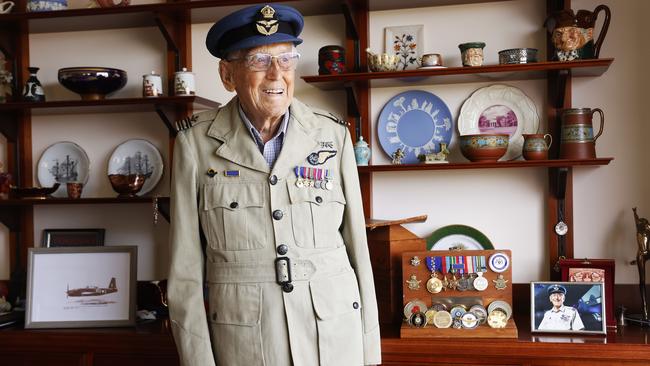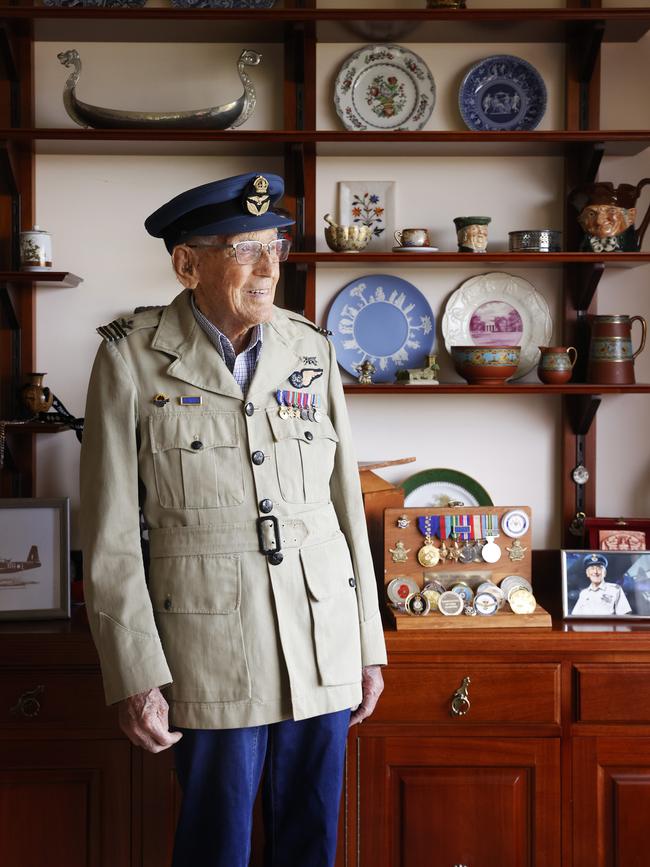Brian Winspear, Tasmania’s oldest living WWII vet, pays respects to the 2/40th Infantry Batallion
At 104-years-old Brian Winspear will once again don his Airforce uniform to pay respects to the 2/40th Infantry Batallion on the 80th anniversary of their capture.

Tasmania
Don't miss out on the headlines from Tasmania. Followed categories will be added to My News.
At 104-years-old, Brian Winspear is Tasmania’s oldest known World War II veteran, and despite the horrors he witnessed, remains a “great believer in fate”.
He will be among those travelling to the Midlands town of Ross to pay their commemorate the 80th anniversary of the capture of the 2/40th Infantry Battalion.
The 2/40th, which was almost entirely Tasmanian and formed the bulk of the “Sparrow Force”, was deployed to Timor in December 1941.
Closing in, the Japanese forces issued an ultimate to either surrender or face bombing.
As a result, many soldiers became prisoners of war.

Upon returning to Tasmania, the soldiers held a reunion – a tradition that continues today and will welcome attendants including families, soldiers, politicians and of course, Mr Winspear.
Now 104, Mr Winspear said he knew many of the soldiers from his schooling years at Scotch College in Launceston, one of whom was engaged to his sister, but tragically killed in war.
“A fine bloke,” he said.
The last 2/40th Battalion member, Lloyd Harding, died in 2021.
Mr Winspear was born in Burnie and signed up as an air force pilot at just 19 years old.
He later became a wireless air gunner, and was deployed to Darwin from Victoria on December 7 1941 – the same day Pearl Harbour was bombed by the Japanese.
Flipping through the pages of his wartime diary, he recalled his experiences of the 200 hours he spent flying Diane, one of the planes of the No. 12 Squadron.
“There were 12 planes all flying vertically, and they couldn’t see the targets so between the pilots legs there was a trap door and you could look down at the bombing,” he said.
After the war, Mr Winspear moved to Bicheno, establishing a milk bar “when the population was just six”.
He was later awarded an Order of Australia for his service to tourism and the community for his work in the motel and fishing industries.
But he has always kept his past close.
“I was a great believer in fate,” he said from the Bellerive home in which he still lives, independently, with its walls covered in photos, certificates, medals and newspaper clippings collected over his long and celebrated life.


